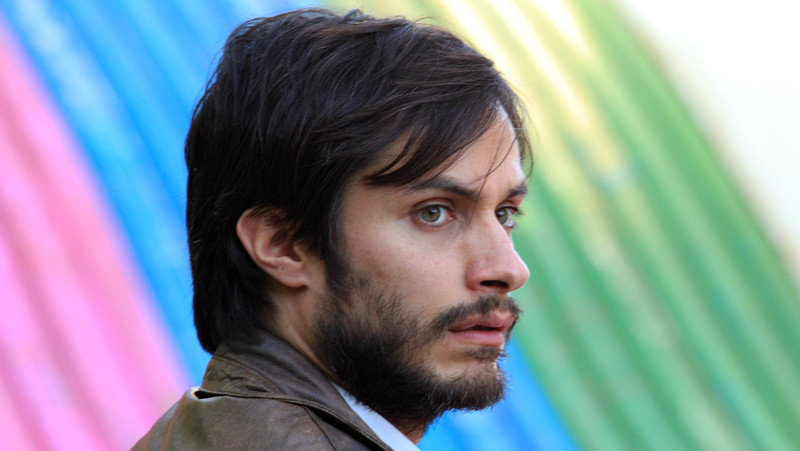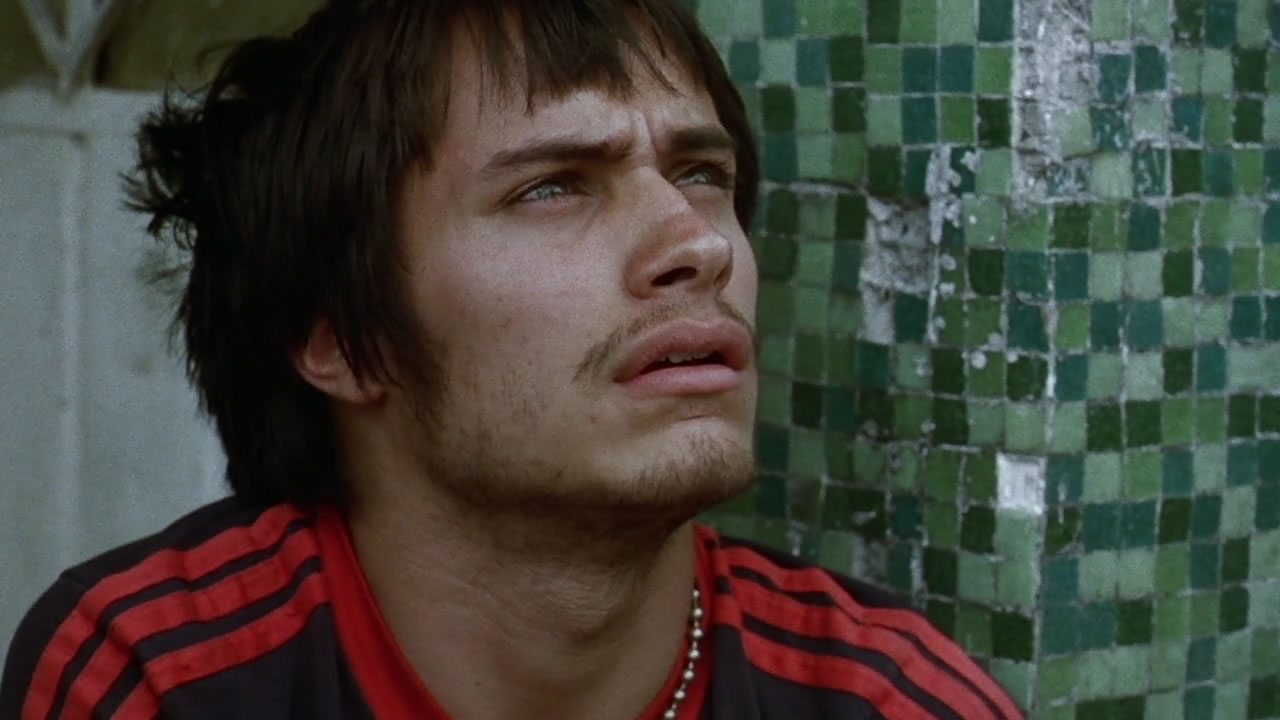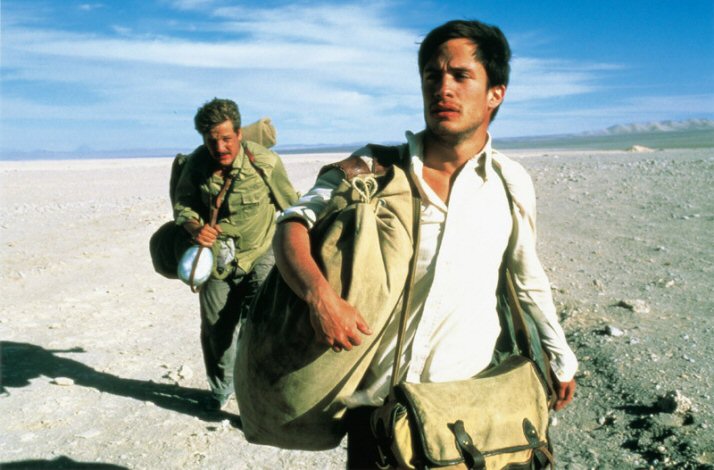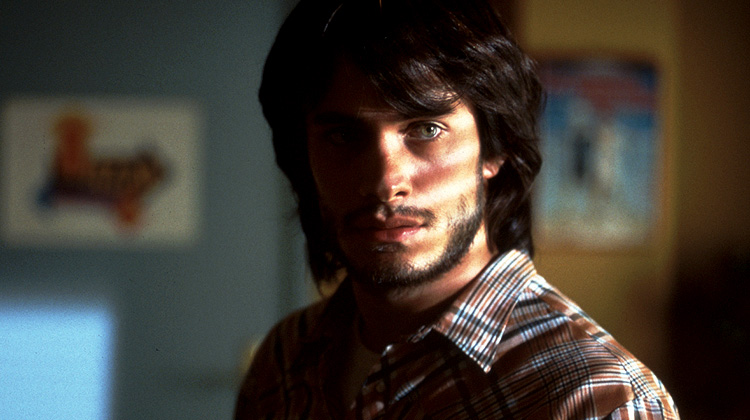
Film actor and director Gael Garcia Bernal was born on November 30, 1978, in Guadalajara, Mexico. His parents were both actors and he was deeply influenced by them. He began acting in soap operas when he was a teenager and at the age of 19, he moved to London to study acting at the Central School of Speech and Drama for three years. He was the first Mexican to be accepted at this prestigious school.
After his studies he returned to Mexico and took part in some of the most famous and successful films from his country, including “Amores Perros” and “Y Tu Mamá También”. These films were representative not only of Mexico but of other Latin American countries as well. The themes of love, freedom, poverty and oppression are universal and almost all the films of Gael Garcia Bernal can be addressed to a worldwide audience.
Today, he is one of the most iconic and successful actors of his generation and has worked with some of the best directors in the world, imcluding Pedro Almodόvar, Alejandro González Iñárritu and Alfonso Cuaron.
(Movies are ranked in chronological order)
1. Amores Perros (Alejandro González Iñárritu, 2000)

Three stories are intertwined through a horrific accident. Octavio (Gael Garcia Bernal) is trying to save money by taking his dog to dogfights in order to take off with his brother’s wife, Susanna (Vanessa Bauche). His dog is ruthless and it won’t take long to cause outrage from the other participants. The escalation of violent events leads Octavio to drive fast with his friend and his dog and crush another woman’s car by running a red light.
Valeria (Goya Toledo) is a famous model and the accident completely transforms her life. The third person is a homeless man (Emilio Echevarría) who loves dogs and kills people for a living. He takes advantage of the accident and he steals Octavio’s money.
The first collaboration between director Alejandro González Iñárritu and screenwriter Guillermo Arriaga is a tough portrait of love and the tragic consequences of the loss of love. Mexico is the perfect place to depict the harshness of their lives and the script beautifully connects their stories.
Bernal was only 22 when he took part in this film and was relatively unknown at the time. Nevertheless, his performance is great and he manages to show a variety of emotions during his quest for freedom. He can’t take any more of his brother’s violent behavior and he wants to escape his dull life with his brother’s wife, who he loves very much.
Although in the beginning he does not react to the violence he endures, he transforms during the film and he doesn’t hesitate to use every mean possible to fulfill his purpose.
2. Y Tu Mamá También (Alfonso Cuarόn, 2001)

Julio (Gael Garcia Bernal) and Tenoch (Diego Luna) are two teenagers who want to have fun over the summer. They are best friends and their girlfriends are leaving for a trip, so they are planning their own vacation. Their excitement grows bigger as they meet Luisa (Maribel Verdu), a 28-year-old woman, and they convince her to join them on a quest to an imaginary deserted beach called Boca del Cielo (Mouth of the Sky).
During their journey, they find out many things about themselves and their relationship and some of them are difficult to comprehend. They also plan to view the life of the Mexican citizens outside of the city, and the harsh conditions they live in.
Some people blamed the movie for scenes that depicted sex and the use of drugs as being hyperbolic. However, director Alfonso Cuaron’s intention wasn’t to shock people, but to show realistically what it’s like to be a teenager and to live in Mexico with all of its beauties and also its problems.
Gael Garcia Bernal and Diego Luna became stars from this movie and the audience commended their performance worldwide. Their chemistry was natural and the movie was the beginning of a long friendship and collaboration. Bernal was established as a superb actor and after this film he proved he is an actor who can play difficult roles and problematic characters with remarkable ease.
3. The Motorcycle Diaries (Walter Salles, 2004)

Ernesto Guevara de la Serna (Gael Garcia Bernal) is a student of medicine and his best friend is Alberto Granado (Rodrigo De la Cerna), who is a student of biochemistry. They live in a turbulent period of time in Argentina and they want to travel along South America to discover the reality of living in another Latin country.
They will satisfy their curiosity with Alberto’s motorcycle, on a journey that will change their lives forever. Ernesto’s family provides him with the means to travel, but the trip will be long and they will need more resources. Suffering from asthma, Ernesto will jeopardize his own health in order to not betray his ideals.
These ideals become greatly affected over the journey and through the realization of the harsh conditions that the ordinary South American people have to live in. This trip became the benchmark of Ernesto becoming Che Guevara, a rebel and probably the most iconic figure for 20th century resistance in Latin America.
“Wandering around our America has changed me more than I thought. I am not me anymore. At least I’m not the same I was.” Based on the diary of Che Guevara, director Walter Salles created a unique journey of conjuring up a character whose face would be on millions of t-shirts and posters all over the world.
The breathtaking views and beautiful cinematography by Eric Gautier from Argentina, Brazil, Chile and Peru add a poetic element to the movie. Bernal once again plays a young character who is eager to understand and conquer the world. His acting was acclaimed from numerous people and critics, and he was nominated for many awards, including the BAFTA.
4. Bad Education (Pedro Almodόvar, 2004)

Enrique Goded (Fele Martinez) is a director. He is approached by an ambitious and rising actor named Ignacio Rodriguez (Gael Garcia Bernal), whose artist pseudonym is Ángel. The two artists were schoolmates in Catholic school and they share common experiences.
When they were younger, they experimented sexually together, but the school’s environment was not ideal for young kids. Ignacio was sexually abused by the school’s priest, which that marked his life forever. Now he goes to Enrique with a screenplay in his hands, and it is not for the faint at heart. It shares their tough childhood and Ignacio asks him to direct it with him as the protagonist. Enrique decides to fulfill his friend’s wish.
Pedro Almodόvar’s movie is a harsh portrait of the Franco-era in Spain, through the eyes of the two friends. The film is full of flashbacks and the three stories are intertwined masterfully and all end up in the final scene.
Gael Garcia Bernal gives one of his best (or for some people his very best) performances. He is equally good at portraying the multiple roles of Ignacio as Ángel, Juan and Zahara. He becomes ruthless as the movie goes on and he would do anything to satisfy his vanity. His acting is outstanding and it does not lack at all from the quality of the famous protagonists of other Almodόvar films.
5. The King (James Marsh, 2005)

Elvis Valderez (Gael Garcia Bernal) is the illegitimate son of a pastor and a Texas prostitute. He is enlisted in the US Navy and after he is discharged, he drives a used car to Corpus Christi, Texas, to find his father. His father is the pastor David Sandow (William Hurt), who has a family and he is not happy to be confronted with his past. He tells Elvis that he has a family now and he simply cannot accept him.
However, Elvis does not give up and moves into a local motel. He gets a job delivering pizzas, using his own car. In the meantime, he gets highly acquainted with the pastor’s teenage daughter Valerie (Pell James) and they start a sexual relationship. This fact leads to an escalation of events that will completely change their lives forever.
Elvis is one of Gael Garcia Bernal most enigmatic characters; we’re never sure what he really wants. Does he really miss his father? Did he come to be a part of his father’s family or did he come back to completely destroy it? Bernal succeeds in showing the character of a troubled young man who has left unfinished business with his past.
William Hurt also does a wonderful job by displaying the confusion of a man who has devoted his life to God and does not really know what He wants from him. The end is open to interpretation with regards to young Elvis’s motives.